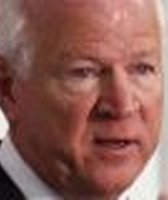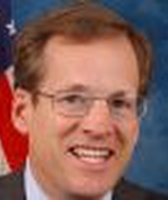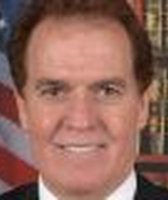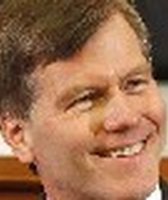Stand up for the facts!
Our only agenda is to publish the truth so you can be an informed participant in democracy.
We need your help.
I would like to contribute
Congressman tweets Obama pro- "amnesty" during State of the Union
Shouting "you lie" at President Barack Obama? That’s so 2009.
During 2011’s State of the Union address, U.S. Rep. Paul Broun, an Athens Republican, lobbed his real-time critiques in the form of tweets, all from his office.
"Mr. President, you don’t believe in the Constitution. You believe in socialism," Broun posted on his Twitter account.
"Obama’s policies kill free-enterprise," said another.
Broun made headlines. Critics noted how his tone clashed with the conciliatory one politicians struck after the shooting of U.S. Rep. Gabrielle Giffords on Jan. 8.
We took notice because Broun addressed a subject that’s been on our minds: immigration policy.
"President Obama is calling for amnesty," Broun tweeted.
We’ve never heard Obama say he supports "amnesty," but we’ve heard his opponents say over and again that he does.
So is the president for or against it?
Broun spokeswoman Debbee Keller said the tweet responded to a reference Obama made in his speech to the Development, Relief, and Education for Alien Minors (DREAM) Act, which failed during last year’s lame-duck session. It would have allowed illegal immigrants brought to the United States as children to become citizens if they attend college or serve in the military.
The DREAM Act would affect a smaller segment of the country’s roughly 11.1 million illegal immigrants than a Republican effort that failed in 2007 under President George W. Bush. That proposal would have granted temporary legal status to nearly all illegal immigrants in the country while allowing them to apply for residence and eventual citizenship.
By definition, "amnesty" means to overlook an offense, Keller said. Since the DREAM Act would have forgiven certain people for immigrating to the U.S. illegally, it counts as amnesty.
Simple enough, right?
Well, maybe. Maybe not.
Opponents to the DREAM Act criticize it by calling it "amnesty." Backers of the legislation don’t. They prefer "legalization" and "earned legalization" because "amnesty" has such negative overtones.
Obama doesn’t use "amnesty" either. In an official position statement on the broader topic of immigration reform, he says "the immigration debate has often been portrayed as a false choice between amnesty and mass deportation."
We talked to Steven Camarota, the research director at the Center for Immigration Studies. The group believes fewer immigrants should be allowed into the U.S. It thinks the DREAM Act has some merits but needs major revisions.
We also talked to Marc Rosenblum, a senior policy analyst at the Migration Policy Institute, a think tank that has studied the DREAM Act.
Camarota and Rosenblum noted that under existing DREAM Act proposals, forgiveness comes with strings attached. Rosenblum emphasized that it grants citizenship only under certain conditions that many may be unable to meet.
According to the MPI’s July 2010 analysis, slightly more than 2.1 million youths and young adults could be eligible to apply for legal status if the legislation were enacted. But historical trends indicate that only 38 percent would likely be able to complete the requirements to become permanent, legal residents.
That’s because the odds are against them. Dropout rates for Hispanic youths are at about 20 percent, vs. 5 percent for non-Hispanic whites. Many live at 200 percent of the poverty rate or lower, a group that tends to complete college associate’s degrees at lower rates.
We found the DREAM Act’s strings are bigger than those in the U.S.’ only major legalization program, the Immigration Reform and Control Act of 1986.
That legislation, which was described as "amnesty" at the time, had no college education or military service requirement. Illegal immigrants could become legal permanent residents if they could prove they were in this country by Jan. 1, 1982; were not felons or convicted of three or more misdemeanors in the U.S.; and demonstrated a basic knowledge of English and American history and government.
Both experts agreed that the term "amnesty" is so charged that it complicates the debate. Since 1986, it has become "a bad word," Rosenblum said.
Rosenblum does not describe the DREAM Act as "amnesty." Unlike the 1986 bill, the DREAM Act requires that when they apply, they commit to future actions -- such as completing two years of college -- in order to gain legal permanent residence. This means it will be easier to monitor for fraud and compliance.
Rosenblum also notes it bears significant resemblance to another already-existing "earned" path to citizenship. Currently, foreigners under the H1B temporary work visa can petition to earn their green card.
Camarota thinks the DREAM Act amounts to amnesty. He notes that one of the reasons some DREAM Act backers avoid the word is that it doesn’t do well in focus groups.
But more to the point, just because the DREAM Act attaches conditions to forgiveness doesn’t mean it’s not amnesty, he said. Amnesty for offenses such as unpaid taxes or parking tickets typically include conditions.
"This is like a parking tax amnesty or a tax amnesty. ... It’s not that different from 1986," Camarota said.
So what does this mean?
We found that people who like elements of the bill, not just its opponents, can make good arguments that "amnesty" is appropriate based on the bill’s specifics and past examples. You can also use that information to make a good argument that the label is inaccurate.
And so here we have a case where in the middle of the State of the Union address, and in the midst of a years-long debate on a vexing issue, Broun uses a tweet to label Obama’s policy "amnesty."
The tweet was unequivocal and without nuance. But the label is debatable and so charged it should come with a lot more explanation.
Broun’s statement is accurate but leaves out important details. It meets PolitiFact’s definition of Half True.
Featured Fact-check
Our Sources
Twitter.com page for U.S. House Rep. Paul Broun, R-Athens, accessed Jan. 26, 2011
The Hill, "Rep. Broun to Obama: 'You believe in socialism,' " Jan. 25, 2011
The Hill, "Rep. Broun to Obama: 'You believe in socialism,' " Jan. 25, 2011
The Wall Street Journal, "Tweeting the State of the Union," Jan. 25, 2011
Congressional Research Service, "Unauthorized Alien Students: Issues and
‘DREAM Act’ Legislation" Sept. 22, 2010
PolitiFact.com, "RightMarch.com claims DREAM Act would provide amnesty to two million illegal immigrants," Dec. 26, 2010
PolitiFact.com, "Provide a path to citizenship for undocumented immigrants," Jan. 5 , 2010
The Library of Congress, "Immigration Reform and Control Act of 1986," accessed Jan. 27, 2011
Organizing for America, "Comprehensive Immigration Reform," accessed Jan. 27, 2011
Migration Policy Institute, "DREAM vs. Reality: An Analysis of Potential DREAM Act Beneficiaries," July 2010
Migration Policy Institute, "Earned Legalization: Effects of Proposed Requirements on Unauthorized Men, Women and Children," January 2011
Politico.com, "Dems' tough new immigration pitch," June 10, 2010
The Dallas Morning News, "In the immigration war, a battle over the word 'amnesty,' " Aug. 9, 2001
E-mail interview, Debbee Keller, spokeswoman, U.S. Rep. Paul Broun, Jan. 26, 2011
Interview, Steven Camarota, research director at the Center for Immigration Studies, Jan. 26, 2011
Interview, Marc Rosenblum, senior policy analyst, Migration Policy Institute, Jan. 26, 2011
Browse the Truth-O-Meter
More by Willoughby Mariano
Congressman tweets Obama pro- "amnesty" during State of the Union
Support independent fact-checking.
Become a member!
In a world of wild talk and fake news, help us stand up for the facts.



























































